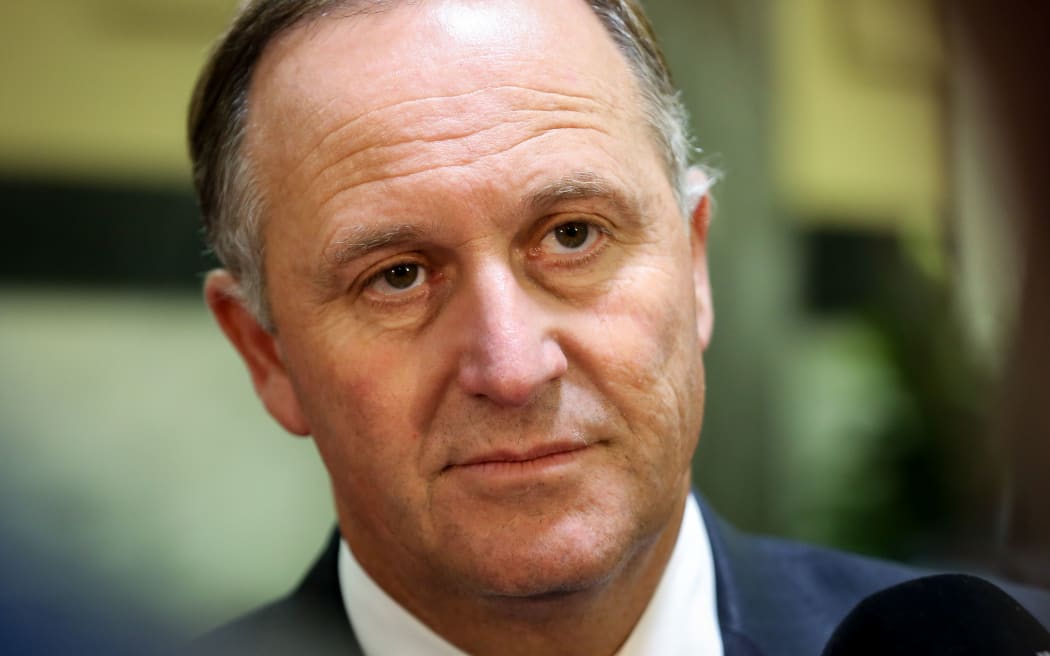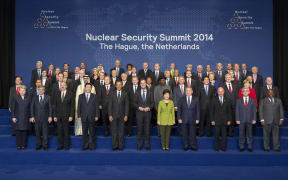Prime Minister John Key says developments such as the Iran deal have made a difference to the international nuclear landscape, as he travels to Washington for the fourth and final nuclear security summit.

John Key is to attend a nuclear summit in Washington. Photo: RNZ / Alexander Robertson
Over the next two days Mr Key will also meet with senior members of President Barack Obama's Cabinet, where US domestic politics and the Trans-Pacific Partnership (TPP) will be on the agenda.
At the nuclear security summit, next Saturday, world leaders will work to secure vulnerable nuclear materials and prevent them being used in terrorist attacks.
At the start of the year international sanctions on Iran were lifted after it curtailed its nuclear programme following an agreement with other world powers.
However the US has imposed fresh sanctions over a recent ballistic missile test.
Regardless, Mr Key said the Iran deal was a significant in a global context.
"On the best advice I've had, even from President Obama saying to me directly last year, you've got genuine access taking place now into Iranian nuclear material.
"And you've got to remember the nuclear summit's all about how you can ensure that the bad guys, if you like, don't get access to that nuclear material, how it can be transported and how it can be destroyed appropriately."
Labour foreign affairs spokesperson David Shearer agreed the Iran deal removed one source of friction but said there was still plenty of work to be done.
'The proliferation around the world, the unstable nature of the world, means we have to keep a strong eye on it."
"The fact that that's [the Iran deal] been effectively sidelined now means that we can get on with the other issues which are about nuclear material that could be floating about, that could be used for a dirty bomb, that's not an explosive device but nonetheless spreads radiation around the place."
It was unfortunate, he said, that Russia was unlikely to attend this year but he said the summits had been "reasonably successful" in trying to make sure nuclear material did not get into the hands of terrorists.
Greens foreign affairs spokesman Kennedy Graham agreed with Russia's objections about the central role the US played in the nuclear summit.
He believed the work should continue but within the International Atomic Energy Agency instead.
Dr Graham said there was still a significant risk of nuclear material being used in a terrorist act as governments were unable to thwart all terrorist attacks as Brussels and Paris showed.
"They do thwart a number, but they don't thwart them all. So it's clear there's a limit on the ability of governments to stop terrorist groups that are highly organised.
"Now whether that stretches to acquiring fissile material and using it in a very crude nuclear device is another story, but I think it's entirely possible."
Mr Key said TPP would be one of the topics he discussed with members of President Obama's Cabinet, but he did not intend to seek assurances about the level of support in Congress.
New Zealand has signed the TPP but the deal only comes into force when at least six countries, representing at least 85 percent of the combined GDP of the 12 countries, ratify it.
That means that the US and Japan must be signatories for the deal to happen.
"But yeah, I'm just meeting a whole range of their economic officials including Jacob Lew from the Treasury and Janet Yellen, so it's not so much to test the waters on TPP, it's really to sort of get a sense of an economic update from the United States."
Mr Key said he would have several opportunities to talk to Mr Obama himself during the trip, but they did not have a formal bi-lateral meeting scheduled.
He arrives back in New Zealand on Sunday.


